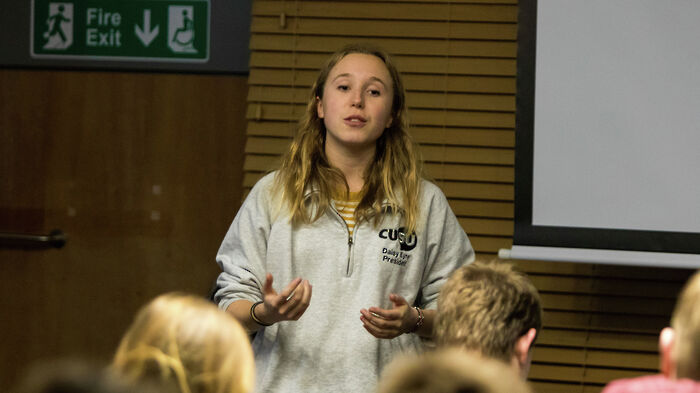Analysis: CUSU finances remain strained, despite hints of improvement
The Mid-Year Budget Review revealed the student union will still face a £70,000 deficit at the end of the year

Following the release of CUSU’s ‘Mid-Year Budget Review’, a tangible improvement in the student union’s strained financial situation does not appear to be on the cards. There was a brief discussion of the document at CUSU Council on Monday, but no JCRs expressed concern about the issue – possibly due to many JCR presidents having only recently been appointed, or not in attendance, and a new requirement that questions to be submitted at 4pm on the day of Council.
The document was released in the interests of transparency and in preparation for the next budget in Easter, but the next round of planning is unlikely to be any easier. The student union’s trustees have resolved to keep budget allocations for 2017/18 at their current levels. While CUSU has forecasted “a slightly smaller loss than that budgeted,” with a £31,000 positive variance once outstanding funds from the University have been transferred, it is still working at a loss. Its budget was passed in May 2017, with expected losses of £75,000 for the 2017-18 academic year. Even with new savings, the student union is still expected to run a deficit of £44,000 by the end of the year.
Some of CUSU’s savings have come from its ‘Representation and Campaigns’ budget - with the second-largest saving, £2,917, in salary costs for sabbaticals. By far the largest saving has come from a discount in its NUS Affiliation fee. In spite of having budgeted £10,527 for the fee, CUSU unexpectedly was only asked to pay £250. President Daisy Eyre told Varsity that CUSU had repeatedly emphasised its financial hardship to the national union: as things stand, we don’t know for sure if this figure won’t fluctuate again.
It is also unclear as to whether CUSU has a firm idea of how it will replace its lost revenue streams, having operated at a deficit since the 2014-2015 academic year. Many of its current financial woes stem from the termination of its publishing contract with St. James’s House, which previously provided the student union with an annual £140,000 of “unrestricted funding.” While the document makes vague references to a new, “replacement careers initiative,” it admits that this “underperformed financially in its first year,” despite supposed “positive” feedback. The student union claims to be moving forward optimistically, with the careers project expected to run “concordantly with the Freshers Fair Careers Zone in 2018-19.”
The most concrete part of CUSU’s proposed solution appears to be asking the University for increased funding. It asked for an uplift in funding of £80,000, which was backed by the CCSSU and is yet to be approved by the University’s annual Planning Round, for which submissions were accepted in November.
Varsity reported in November on CUSU’s failure to meet any of the eight targets set out in its Strategic Plan 2014–17. These included aims to affiliate all Cambridge common rooms, a satisfaction rate of 58% from recent graduates in the NSS survey, and a move to greater independence in its funding. Following this disappointment, Eyre spoke of wanting to make the process of developing its next Strategic Plan “more organic” and “more flexible.” In an email sent out to students on Wednesday, Eyre showed signs of continuing in this approach, asking students to fill out a survey on aspects of the next Strategic Plan and sign up for its focus groups. For now, only time will tell whether students take up the call.
 News / Colleges charge different rents for the same Castle Street accommodation2 March 2026
News / Colleges charge different rents for the same Castle Street accommodation2 March 2026 News / News in Brief: waterworks, wine woes, and workplace wins 1 March 2026
News / News in Brief: waterworks, wine woes, and workplace wins 1 March 2026 News / Climate activists protest for ‘ethical careers policy’1 March 2026
News / Climate activists protest for ‘ethical careers policy’1 March 2026 News / Angela Merkel among Cambridge honorary degree nominees27 February 2026
News / Angela Merkel among Cambridge honorary degree nominees27 February 2026 News / Private school teacher who lied about Cambridge degree barred from teaching27 February 2026
News / Private school teacher who lied about Cambridge degree barred from teaching27 February 2026











